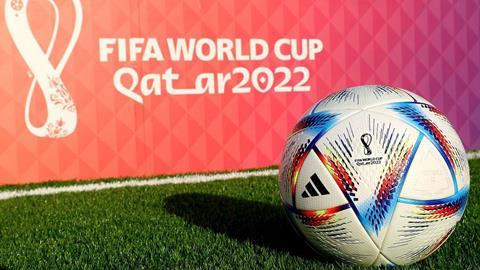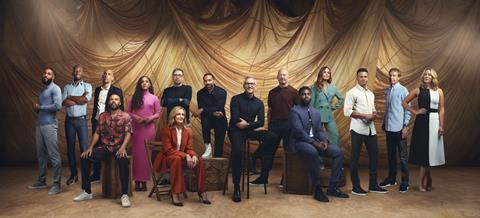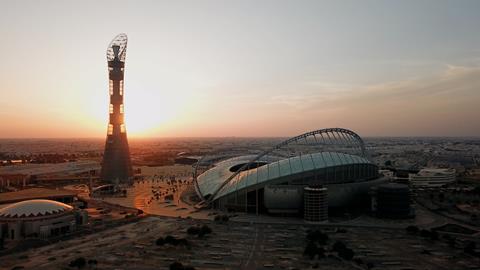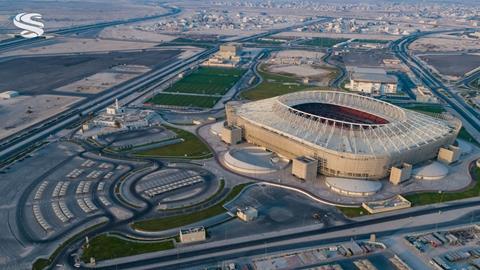BBC Sport executive producer Phil Bigwood tells Broadcast Sport how the broadcaster is approaching the competition

The Qatar 2022 FIFA World Cup will be a “unique proposition” for the BBC, believes BBC Sport executive producer Phil Bigwood.
A “24/7” offer with “wall to wall football” will be expected from the broadcaster, while “absolutely” addressing the human rights issues that have dominated conversations in the build up to the tournament.
Bigwood spoke to Broadcast Sport about the broadcaster’s plans for Qatar, saying on human rights, “Absolutely we are going to address it from the get go. It’s only right and proper. We work closely with our colleagues in news and 5 Live, which will help with this.”
This includes, “Definitely discussing it once the action goes ahead.”

When it comes to the production, the BBC is partnering with ITV on the tech provision for the first time, with the pair to share production facilities and personnel. However, Bigwood believes viewers won’t be able to notice that the two public broadcasters are doing this: “The studio looks, talent, and graphics will be the main differences. We’ll be using the same studio boxes in stadiums, but there will be a noticeable difference in look.
“Also, programme plans are being done unilaterally, only the behind-the-scenes stuff is shared. It might be the same cameraman on camera two in the same studio box as the other day, but the viewers at home shouldn’t notice that.”
Timeline is providing the technology and support on site at stadiums and the IBC in Qatar. For the BBC’s full presentation team and match plans, you can read more here.
The small area that the tournament is being played over, all games are within commuting distance from capital city Doha, also allows for more options than other World Cups - this time round every match will be presented from the stadium it is being played at. Bigwood explained: “Eight stadiums very close to each other, with four matches a day, and each venue being used every other day means we can centralise a lot more with facilities used a lot more regularly. Even for Euro 24 in Germany it won’t be possible to do every match from every stadium within budgets.”

Remote production will also come to the fore. Post production will be completely remote in Salford, compared to being done at the IBC in Russia, while there will be one gallery in Salford, and another in Doha - which will be only surfaces, the tech for it being back in Salford too. There will be “a lot” fewer people on the ground, reveals Bigwood.
One thing that will be missing in Qatar is a large scale virtual studio, the kind that viewers will have become used to from the Russia World Cup, Olympics, and other major sport competitions. Bigwood reveals the broadcaster will be putting the freed up resource elsewhere, including the, “Website, social media, Sounds, dedicated iPlayer content, and extended coverage including documentaries. Instagram and TikTok will be big – more interaction with talent and getting the audience more involved.”
This extra social interaction will include AMAs (Ask Me Anything) with talent, as well as a new feature on the BBC Sport live blogs where viewers can upload their own videos to share. Bigwood and the BBC are aware with it being a winter World Cup that people may be less able to come together in public spaces and pub gardens, so want to help to foster that community atmosphere.
In addition, with many games during work hours, short-form highlights will be readily available and matches will be re-run through the night. Digital and social catch up will be emphasised, targeting the young and diverse audiences that the BBC is keen to attract.

Those who watch on high-end screens haven’t been forgotten though, with all BBC1 matches to be shown in UHD on iPlayer. Bigwood explained: “FIFA and HBS [Host Broadcast Services] are producing everything in UHD. We want to build on that, there are cost implications but it is an important part of the future.”
Another “interesting” aspect of the tournament being in winter for Bigwood will be audience figures: “Will there be more people watching indoors? Ourselves and ITV are waiting to see what will happen with that.” It’s mentioned that FIFA expects viewership to grow.
It will have to be seen when the tournament kicks off this Sunday, 20 November, with Qatar v Ecuador on BBC1, whether that prediction is correct.





No comments yet